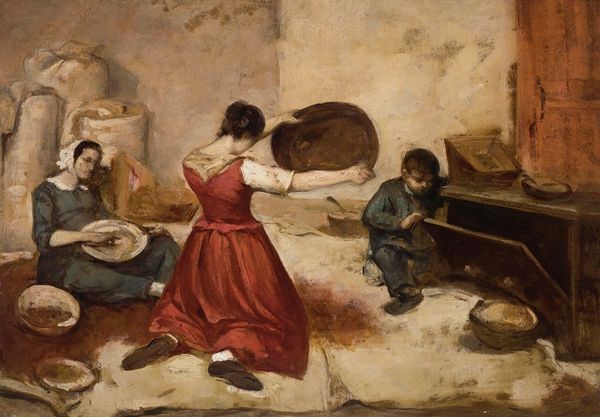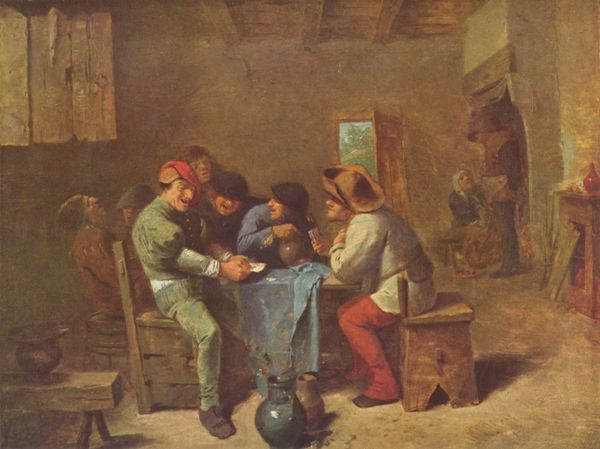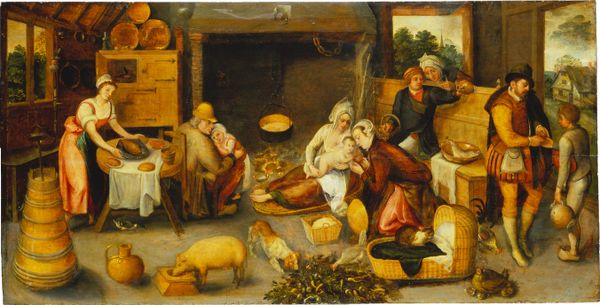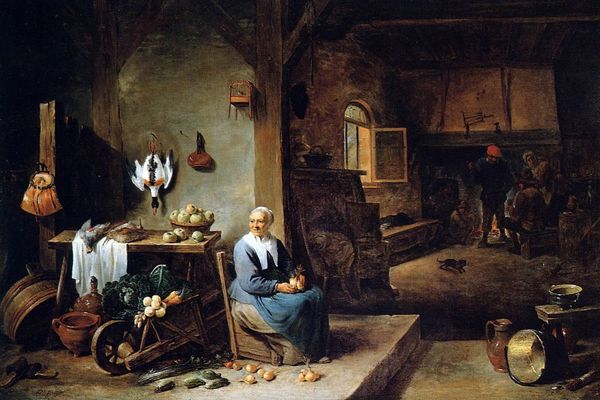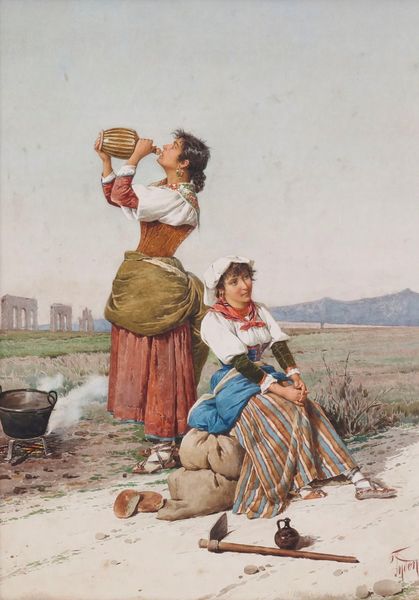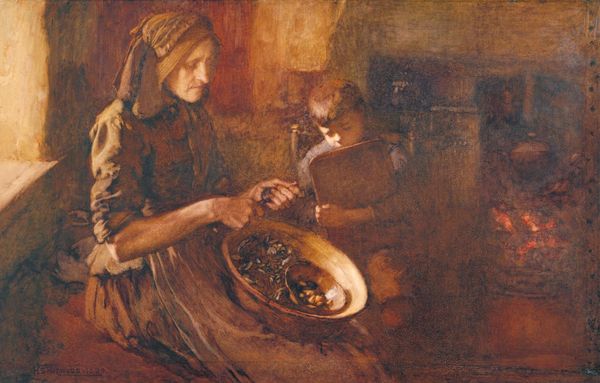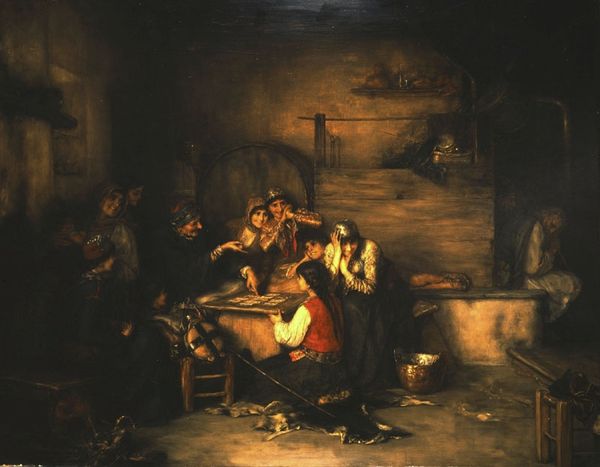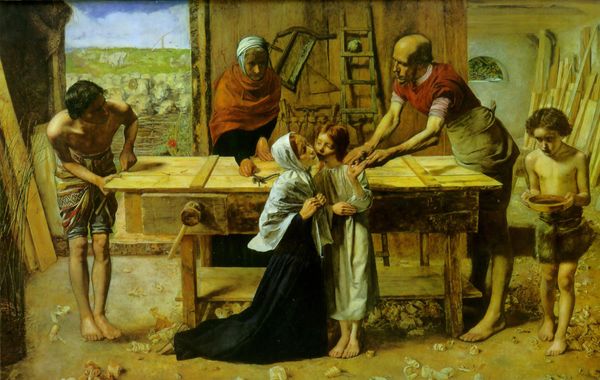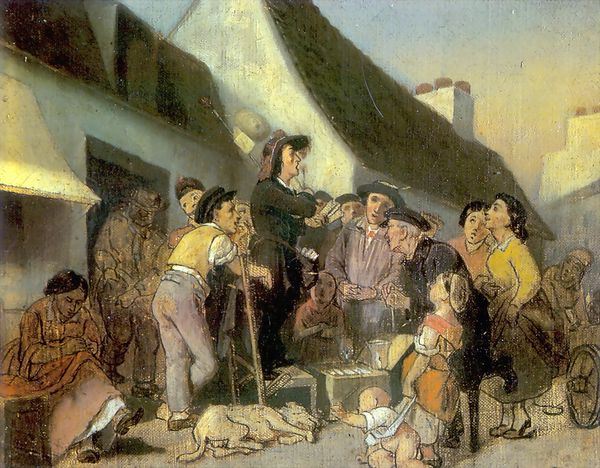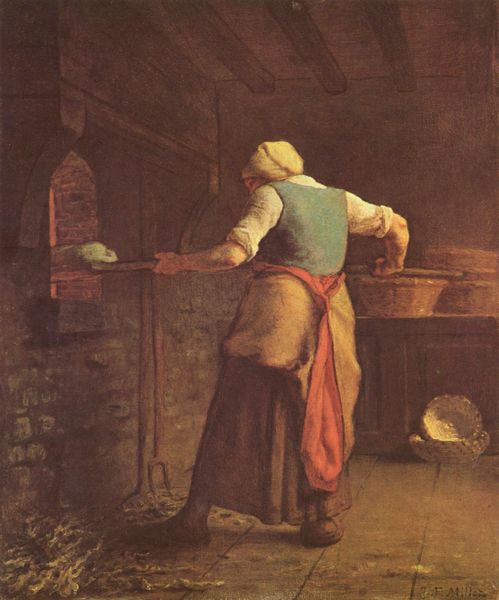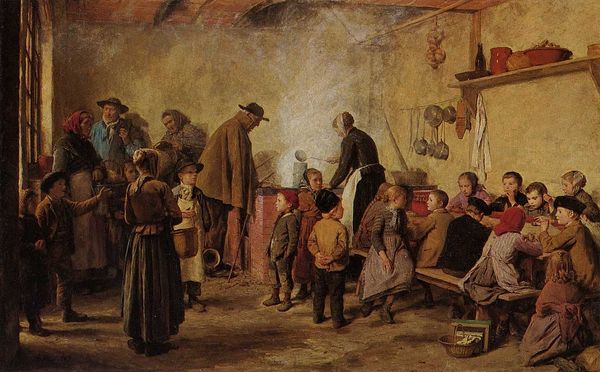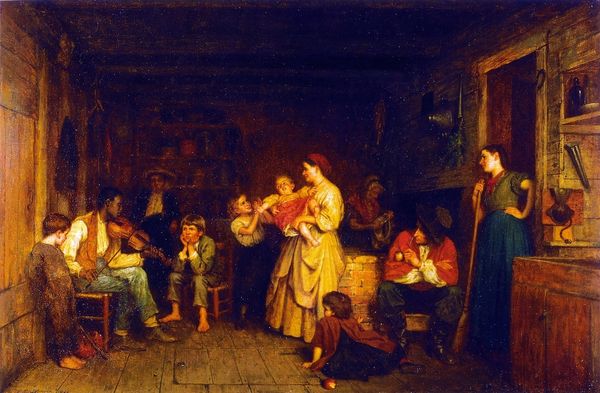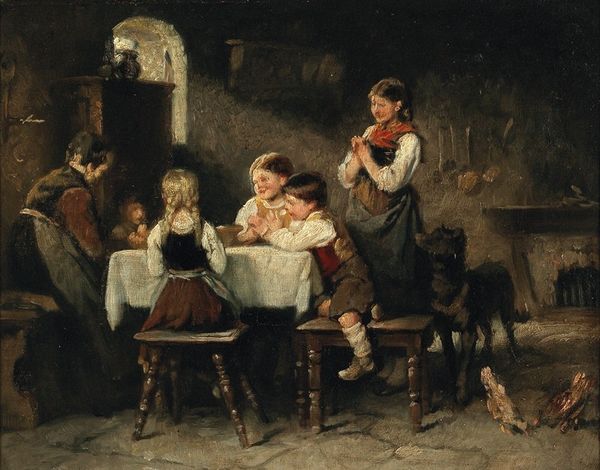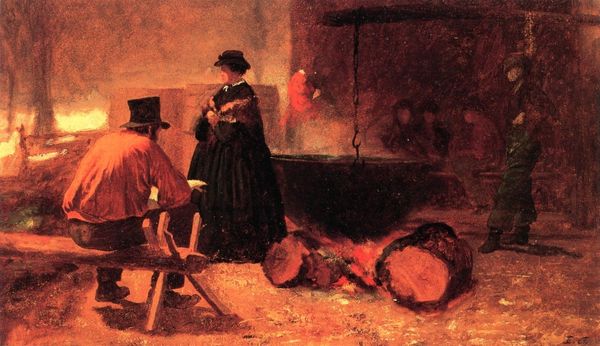
painting, oil-paint
#
portrait
#
painting
#
oil-paint
#
landscape
#
oil painting
#
genre-painting
#
realism
Dimensions: 131 x 167 cm
Copyright: Public domain
Editor: Right now, we're looking at "The Wheat Sifters," painted by Gustave Courbet in 1855, using oil on canvas. It strikes me as a very earthy, grounded piece – both in color and subject matter. What stands out to you from a compositional standpoint? Curator: I’m drawn to the composition as a study in diagonals and circles. Notice how the angle of the wheat sifter in the central figure's hands echoes the lines of the furniture to the right and is counterposed against the lines formed by the bags of wheat on the left. The round baskets scattered throughout further reinforce this circular motif, drawing the eye in and around the canvas. Does that resonance speak to you as well? Editor: I see that, definitely. It feels like the artist has constructed the entire space as a carefully organized system of shapes. Why focus on those specific angles, rather than painting the scene more realistically? Curator: Indeed. The slightly muted palette – predominantly browns, creams, and reds – serves to flatten the image, directing attention to these shapes and their relationships. The eye travels, considering the spatial organization within the composition. It begs the question: are we meant to contemplate merely what is *represented* in this artwork? Or what about *how* these representations affect each other? Editor: So, instead of a literal portrayal of wheat sifting, Courbet's really using these objects and figures to explore form and color in a more abstract way. Thanks! Curator: Precisely! We see the scene transformed into an exploration of pure, interconnected visual components. Thank you for lending your fine perception.
Comments
No comments
Be the first to comment and join the conversation on the ultimate creative platform.
